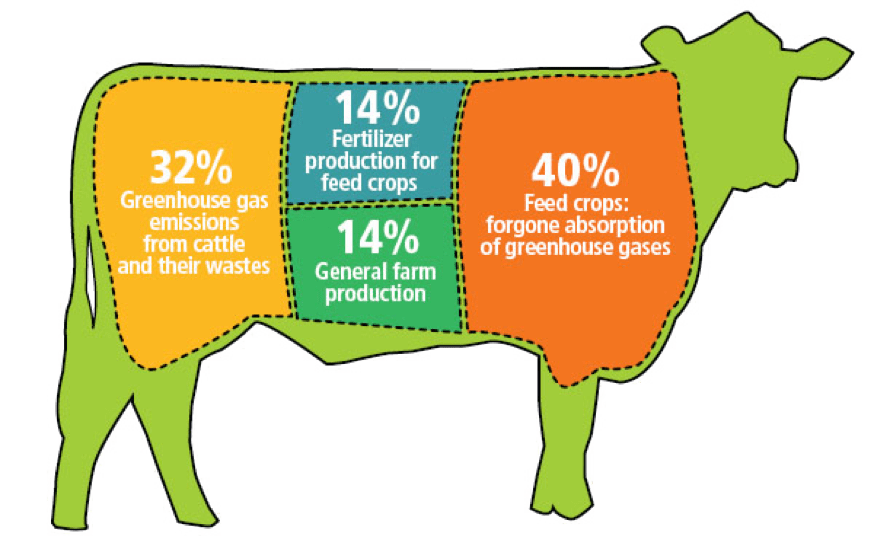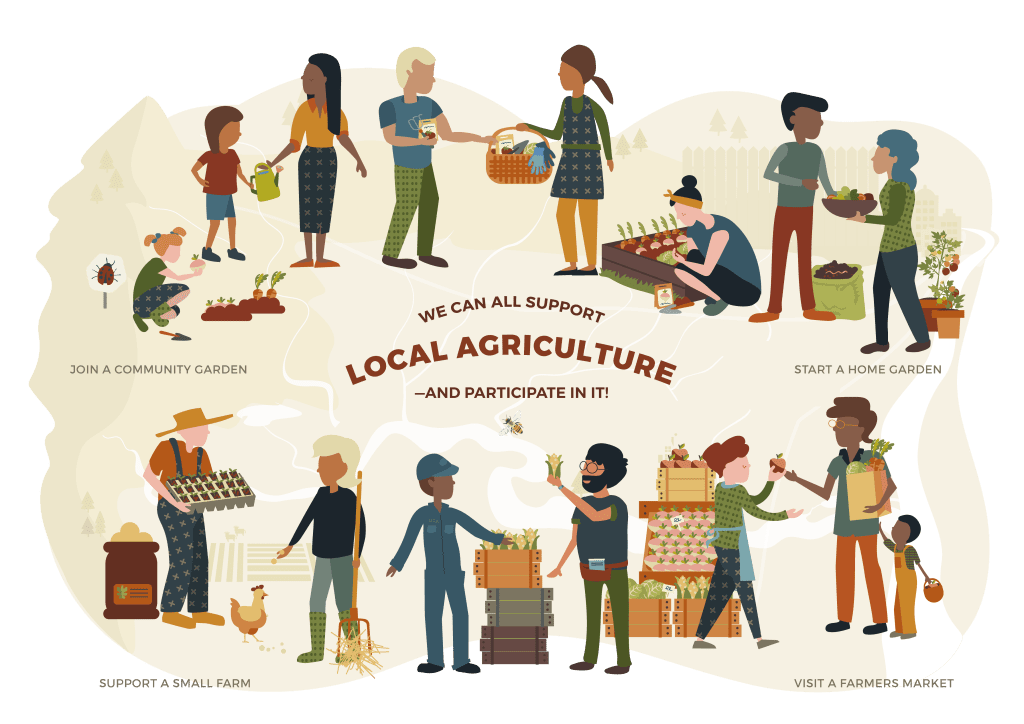With the increasing awareness of the negative impact of our daily consumption habits on the environment and animal welfare, ethical consumption has become a prominent topic in today’s society. As we are faced with the consequences of our actions, it is crucial to reconsider our dietary choices and their implications. In recent years, the promotion of plant-based diets has gained momentum as a means to reduce our carbon footprint and promote ethical treatment of animals. This article will delve into the various reasons why transitioning to a plant-based diet can contribute to a more sustainable and ethical way of living. We will explore the environmental benefits of reducing meat and dairy consumption, as well as the ethical concerns surrounding the animal agriculture industry. Additionally, we will examine the growing trend of plant-based alternatives and the impact they have on our health and the overall wellbeing of the planet. By the end of this article, it is our hope that you will be convinced of the positive impact a plant-based diet can have on the world, and be inspired to make ethical consumption a priority in your daily life.

Ethical consumption starts with diet
With increasing concerns about environmental sustainability and animal welfare, ethical consumption has become a prominent topic of discussion. While many aspects of our daily lives can contribute to a more ethical lifestyle, it is important to recognize the significant impact our dietary choices have on these issues. Adopting a plant-based diet is a compelling and practical way to promote ethical consumption. By opting for plant-based foods, individuals can reduce their carbon footprint, conserve natural resources, and contribute to the welfare of animals. The production of animal-based foods, such as meat and dairy, is associated with deforestation, greenhouse gas emissions, and water pollution. In contrast, plant-based diets have been shown to have a lower environmental impact, as they require less land, water, and energy. Additionally, by eliminating the consumption of animal products, individuals can actively support animal rights and reduce the demand for factory farming practices. From an ethical standpoint, choosing a plant-based diet aligns with the principles of compassion, sustainability, and respect for all living beings.
Impact of meat production on environment
The production of meat has a significant impact on the environment, contributing to various environmental issues. One key concern is deforestation, as large areas of land are cleared to make way for livestock and feed production. This deforestation leads to the loss of valuable habitats and biodiversity. Moreover, meat production is a major contributor to greenhouse gas emissions, particularly methane and nitrous oxide. These gases have a significant impact on global warming and climate change. Additionally, the intensive use of water in meat production, from animal drinking water to irrigation for crops, puts strain on water resources, especially in regions already facing water scarcity. The waste generated from animal agriculture, including manure and chemical runoff, can also pollute waterways, leading to water pollution and ecosystem degradation. Overall, the impact of meat production on the environment is substantial and warrants a shift towards more sustainable and ethical dietary choices.

Plant-based diets reduce greenhouse gas
In light of the environmental challenges posed by meat production, promoting plant-based diets presents a promising solution to reduce greenhouse gas emissions. By replacing animal-based products with plant-based alternatives, individuals can significantly lower their carbon footprint. The cultivation of plant-based foods requires fewer resources, such as land, water, and energy, compared to raising livestock. Additionally, plant-based diets eliminate or minimize methane emissions associated with livestock digestion and manure management. These emissions are potent greenhouse gases that contribute to climate change. Therefore, embracing plant-based diets not only offers health benefits but also plays a crucial role in mitigating climate change and promoting sustainable and ethical consumption practices.
Animal welfare concerns addressed through plant-based diets
Animal welfare concerns are another important aspect addressed through plant-based diets. The industrial farming practices employed in animal agriculture often prioritize efficiency and profit over the well-being of the animals involved. This can result in overcrowded and unsanitary conditions, restricted movement, and the use of hormones and antibiotics. By choosing plant-based diets, individuals can actively participate in a compassionate approach towards animals. Plant-based diets eliminate the demand for animal products, effectively reducing the number of animals subjected to these inhumane practices. Additionally, opting for plant-based alternatives provides a viable alternative to the consumption of animal products, promoting a more ethical and compassionate food system.
Health benefits of plant-based diets
Plant-based diets not only have ethical implications but also offer a plethora of health benefits. Numerous studies have shown that individuals who follow plant-based diets tend to have lower rates of obesity, high blood pressure, heart disease, and type 2 diabetes. This is primarily due to the high intake of fruits, vegetables, whole grains, and legumes, which are rich in essential nutrients, antioxidants, and fiber. Plant-based diets are also typically lower in saturated and trans fats, cholesterol, and processed foods, which can contribute to improved cardiovascular health. Furthermore, the abundance of fiber in plant-based diets promotes healthy digestion, helps maintain a healthy weight, and reduces the risk of colon cancer. By adopting plant-based diets, individuals can proactively enhance their overall well-being and reduce the risk of chronic diseases.

Sustainable sourcing of plant-based foods
In order to fully embrace the ethical consumption inherent in plant-based diets, it is crucial to consider the sustainable sourcing of plant-based foods. Sustainable sourcing refers to the responsible and environmentally-friendly practices involved in the production and distribution of these foods. This entails minimizing the use of synthetic pesticides and fertilizers, conserving water resources, and reducing greenhouse gas emissions throughout the supply chain. Additionally, sustainable sourcing encompasses fair labor practices, ensuring that workers involved in the cultivation and harvesting of plant-based foods are treated ethically and provided with fair wages. By prioritizing sustainable sourcing, we can ensure that our dietary choices not only benefit our health but also contribute positively to the planet, fostering a more sustainable and compassionate food system.
Supporting local farmers and communities
Supporting local farmers and communities is another crucial aspect of promoting ethical consumption and embracing plant-based diets. By choosing to purchase locally grown produce and supporting farmers markets, we can directly contribute to the economic well-being of our communities. Local farmers often employ sustainable farming practices, such as organic methods and crop rotation, which benefit both our health and the environment. Additionally, buying locally reduces the carbon footprint associated with long-distance transportation and supports the preservation of agricultural land in our communities. By prioritizing local food systems, we can foster a sense of connection between consumers and producers, promote food security, and preserve the cultural and culinary heritage of our regions.

Small changes make big impact
In the pursuit of promoting ethical consumption and embracing plant-based diets, it is essential to recognize the power of small changes. Often, we may feel overwhelmed by the magnitude of the global challenges we face, such as climate change and environmental degradation. However, it is crucial to remember that small changes made by individuals can have a significant collective impact. By making small adjustments to our daily habits, such as reducing meat consumption, choosing sustainable packaging options, or opting for reusable products, we can contribute to a more sustainable future. These seemingly minor choices, when adopted by many, can lead to substantial shifts in our consumption patterns and contribute to the preservation of our planet for future generations.
In conclusion, promoting ethical consumption through plant-based diets is not only beneficial for our personal health, but also for the health of our planet and the animals we share it with. By making small changes in our dietary choices, we can contribute to a more sustainable and compassionate world. Let us continue to educate ourselves and others about the impact of our food choices and strive towards a more mindful and ethical way of living. Together, we can make a positive difference for ourselves and future generations.
FAQ
How can promoting plant-based diets contribute to ethical consumption?
Promoting plant-based diets can contribute to ethical consumption by reducing the demand for animal products, which often involve unethical practices such as factory farming and animal cruelty. Plant-based diets also have a lower environmental impact, as they require less land, water, and resources compared to animal agriculture. By choosing plant-based options, individuals can align their consumption with their ethical values, promoting a more sustainable and compassionate lifestyle.
What are some ethical concerns associated with animal agriculture and how can a plant-based diet help address them?
Some ethical concerns associated with animal agriculture include the mistreatment of animals, environmental degradation, and contribution to climate change. A plant-based diet helps address these concerns by eliminating the need for factory farming and reducing the demand for animal products. This reduces animal suffering and allows for more ethical treatment of animals. Additionally, plant-based diets have a lower environmental footprint, requiring less land, water, and resources. By choosing a plant-based diet, individuals can take a stand against the unethical practices of animal agriculture and contribute to a more sustainable and compassionate world.
What strategies can be implemented to encourage individuals to adopt a plant-based diet and promote ethical consumption?
To encourage individuals to adopt a plant-based diet and promote ethical consumption, several strategies can be implemented. Firstly, education and awareness campaigns can be conducted to highlight the environmental and ethical impacts of animal agriculture. Providing information about the health benefits of a plant-based diet can also be effective. Additionally, offering plant-based alternatives that are affordable, accessible, and appealing can help individuals make the transition. Collaborating with schools, workplaces, and community organizations to incorporate plant-based options can also have a significant impact. Lastly, policy changes such as implementing taxes on animal products and subsidies for plant-based alternatives can further incentivize ethical consumption.
Are there any economic benefits to promoting plant-based diets as a means of ethical consumption?
Yes, there are economic benefits to promoting plant-based diets as a means of ethical consumption. Firstly, plant-based diets tend to be more cost-effective than diets centered around animal products, as fruits, vegetables, legumes, and grains are often less expensive than meat and dairy. This can help individuals save money on their grocery bills. Additionally, promoting plant-based diets can have positive economic impacts on industries such as agriculture and food production, as the demand for plant-based products increases. It can also lead to job creation in sectors such as plant-based food manufacturing and distribution. Finally, reducing reliance on animal agriculture can help mitigate the environmental and healthcare costs associated with the industry, leading to long-term economic savings.
How can education and awareness campaigns play a role in promoting plant-based diets and ethical consumption?
Education and awareness campaigns can play a crucial role in promoting plant-based diets and ethical consumption by providing information on the environmental, health, and ethical benefits of such choices. These campaigns can raise awareness about the negative impacts of animal agriculture, such as deforestation and greenhouse gas emissions, while highlighting the benefits of plant-based diets in reducing these impacts. They can also educate the public about the ethical implications of animal exploitation and the alternatives available. By providing knowledge and resources, education and awareness campaigns can empower individuals to make informed choices and shift towards more sustainable and ethical consumption patterns.















































